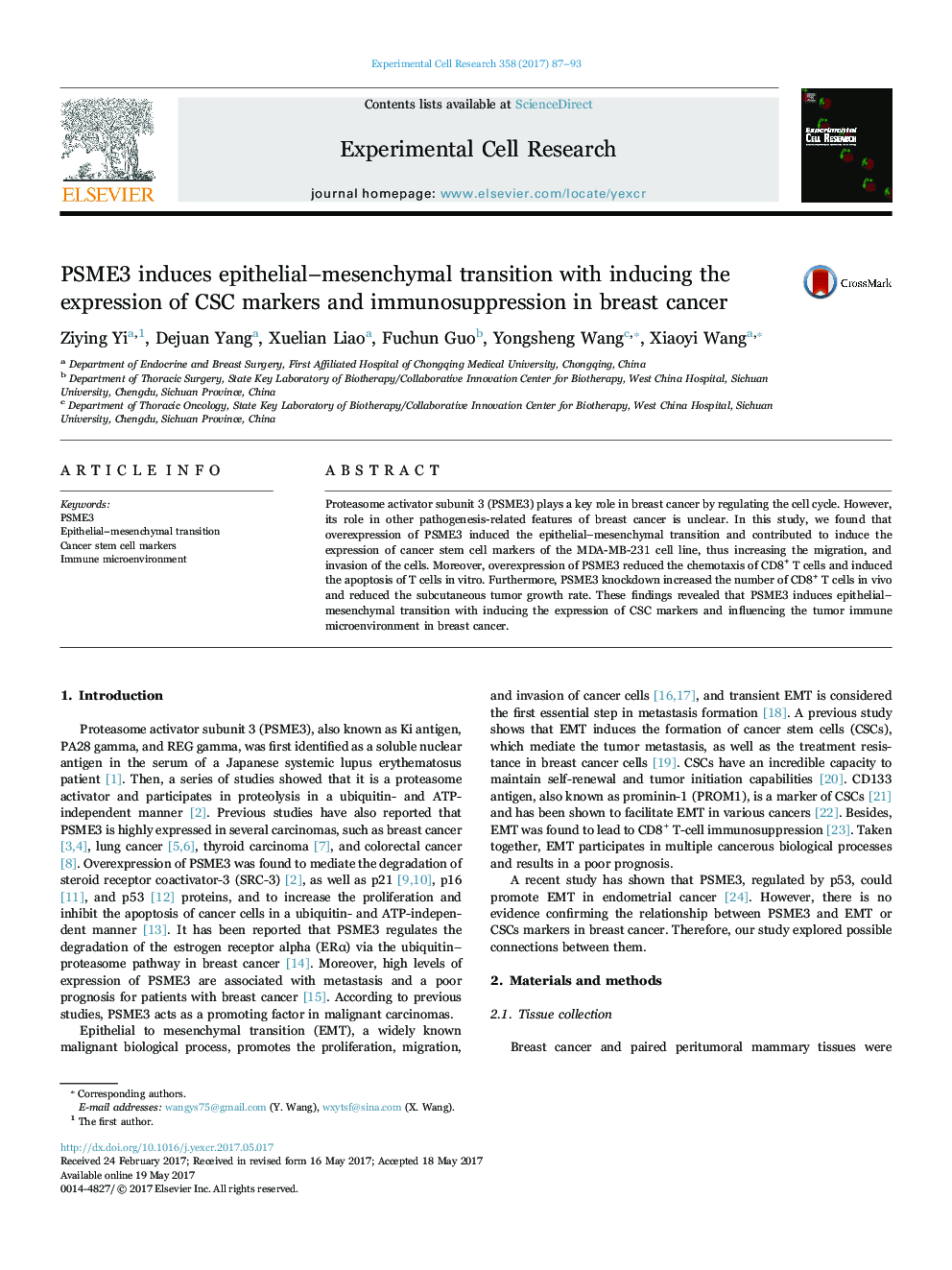| Article ID | Journal | Published Year | Pages | File Type |
|---|---|---|---|---|
| 5527145 | Experimental Cell Research | 2017 | 7 Pages |
â¢PSME3 induces the epithelial-mesenchymal transition in the MDA-MB-231 cell line.â¢PSME3 promotes the migration, invasion, and proliferation of MDA-MB-231 cells.â¢PSME3 induces the expression of CSC markers of the MDA-MB-231 cell line.â¢PSME3 expression induces T-cell apoptosis and increases subcutaneous tumor growth.
Proteasome activator subunit 3 (PSME3) plays a key role in breast cancer by regulating the cell cycle. However, its role in other pathogenesis-related features of breast cancer is unclear. In this study, we found that overexpression of PSME3 induced the epithelial-mesenchymal transition and contributed to induce the expression of cancer stem cell markers of the MDA-MB-231 cell line, thus increasing the migration, and invasion of the cells. Moreover, overexpression of PSME3 reduced the chemotaxis of CD8+ T cells and induced the apoptosis of T cells in vitro. Furthermore, PSME3 knockdown increased the number of CD8+ T cells in vivo and reduced the subcutaneous tumor growth rate. These findings revealed that PSME3 induces epithelial-mesenchymal transition with inducing the expression of CSC markers and influencing the tumor immune microenvironment in breast cancer.
